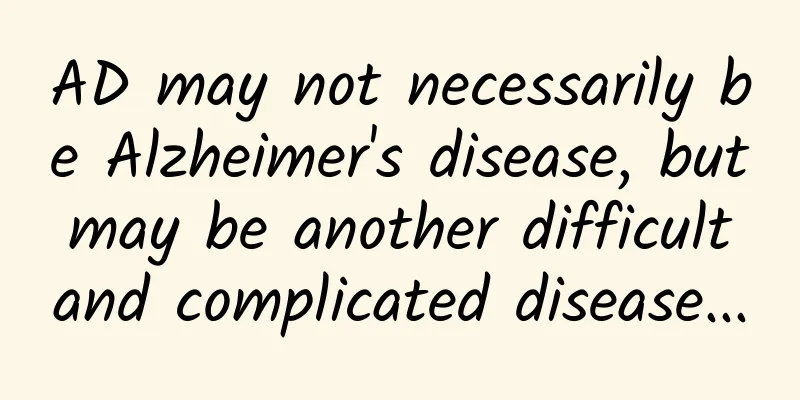Harvard study: Eating one of these fruits a day reduces the risk of depression by 20% (not apples)

|
Compiled by: Gong Zixin Depression affects more than 280 million people worldwide, and 70% of people with depression do not respond well to initial treatment with antidepressants. Therefore, there is an urgent need to identify modifiable causes of depression and develop new treatments. Diet may be a promising avenue for the prevention and management of depression. According to a study published in the journal Microbiome, eating an orange a day may reduce the risk of depression by 20%. This may be because citrus fruits can stimulate the growth of a bacterium in the human gut, Faecalibacterium prausnitzii, which affects the production of neurotransmitters serotonin and dopamine, two biomolecules known to enhance mood. Raaj Mehta, a lecturer at Harvard Medical School and a doctor at Massachusetts General Hospital, collaborated with his postdoctoral fellow Chatpol Samuthpongtorn to explore the relationship between citrus fruits and depression based on a 2016 study that found citrus fruits may reduce the risk of depression. The study used a rich dataset from the Nurses' Health Study II (NHS2), which has been tracking the lifestyle, diet, and health of more than 100,000 women since 1989, and updates the data every two years. By analyzing these long-term follow-up data, the research team found that women who regularly consume citrus fruits have a significantly lower rate of depression in the future than those who do not consume them regularly. This finding provides new scientific evidence for the link between diet and mental health, and lays the foundation for further exploring the potential role of citrus fruits in preventing depression. Identify gut microbial species and metabolic pathways that may mediate the relationship between citrus fruit intake and depression How do the effects compare to traditional antidepressants? The researchers found that eating one medium-sized orange a day was associated with about a 20 percent lower risk of depression, and that the effect appeared to be specific to citrus fruits. When looking at people's total fruit intake, total vegetable intake, or other individual fruits, such as apples or bananas, the researchers did not find any association between intake and depression risk. The researchers note that it is difficult to compare the effects of citrus fruits to traditional antidepressants, such as selective serotonin reuptake inhibitors, because the studies discussed preventing depression and these drugs are typically used to treat people who already have depression. In the future, eating citrus fruits may be part of a strategy to manage depression. But more research is needed before conclusions can be drawn. How exactly does eating oranges reduce the risk of depression? A unique feature of this study is that a subset of NHS2 participants provided stool samples multiple times over the course of a year. Using DNA sequencing results from these stool samples, the researchers found links between citrus intake and specific species of bacteria in the gut microbiome. One bacterium in particular stood out - F. prausnitzii was found at higher levels in people without depression than those with depression, and high intake of citrus fruit was also associated with high levels of F. prausnitzii. Therefore, the researchers believe that this bacteria may link citrus intake to good mental health. Because the NHS2 only involved women, the researchers wanted to confirm these findings in a study involving men, so turned to a similar study called the Male Lifestyle Validation Study, in which increased levels of F. prausnitzii were also found to be inversely correlated with depression risk scores. F. prausnitzii may mediate the association between citrus intake and depression How does F. prausnitzii make people feel better? The researchers think one answer may be that F. prausnitzii uses a metabolic pathway called S-adenosyl-L-methionine cycle I to affect levels of two neurotransmitters produced by human cells in the gut - serotonin and dopamine. These neurotransmitters regulate the passage of food through the digestive tract, but they can also enter the brain and boost mood. The researchers say that before these results, citrus fruits had never been linked to the brain. People often say that fish is brain food, but no one says oranges are brain food. Similarly, F. prausnitzii has been linked to health in many ways, such as reducing the risk of inflammatory bowel disease. But before now, there was no known link between it and mental health. "We would love to see clinical trials that definitively prove that eating citrus fruits can reduce the risk of depression and, in some cases, even relieve symptoms of depression. Since there is a huge and unmet need for treatments for depression, and there are virtually no major side effects to eating citrus fruits, it would be ideal to know how much this simple treatment can help," said Mehta. Note: The cover image is a copyrighted image. Reprinting it may lead to copyright disputes. |
>>: To prevent “egg head rot”, who is the “flower protector” of Songhua preserved eggs?
Recommend
ocpc account and landing page optimization!
Today let’s talk about ocpc account optimization,...
You have to wear a mask when you go out every day. Are you really wearing it correctly?
The weather is getting hotter. Do you always want...
The process and methods of building an activity operation plan!
If you want to obtain more traffic and promote su...
November PR calendar, you deserve to collect it!
October, a month of long holidays and busyness, i...
The first choice of Feng Shui spiritual objects for entrance examinations
June is approaching and the feeling of summer hea...
APP user growth data logic!
APP growth is inseparable from the application of...
If you can't beat them, join them. PetroChina is planning new energy, and the first smart super charging and swapping station is put into operation
Recently, China Petroleum put into operation its ...
In addition to creativity, execution, and methodology, what other skills are essential for great operations?
A product project team usually includes members o...
Bamboo flowering means bad feng shui? Stop believing in superstition!
It, facing the pond, is like jade, and would rath...
What happens to people who often wear high heels?
Do you remember what it was like when you first w...
Tianzhou 6 launched! How was the "courier brother" of China's space program trained?
Produced by: Science Popularization China Author:...
Analysis of the operational process of Tik Tok advertising promotion model!
How are advertisements for products searched on J...
How to go from 0 to 1 in operations and turn a novice into a master
I have read the book "Starting Operations fr...
After looking at these affordable projectors, you can easily get New Year's Eve gifts
What kind of New Year's Eve gift is both prac...
How did VIPKID build a customer acquisition system with a 70% referral rate?
VIPKID is the fastest growing online English educ...









